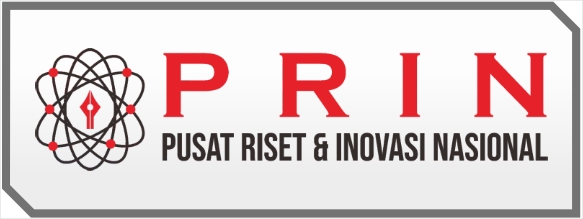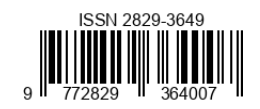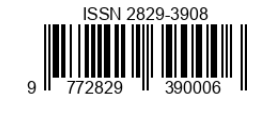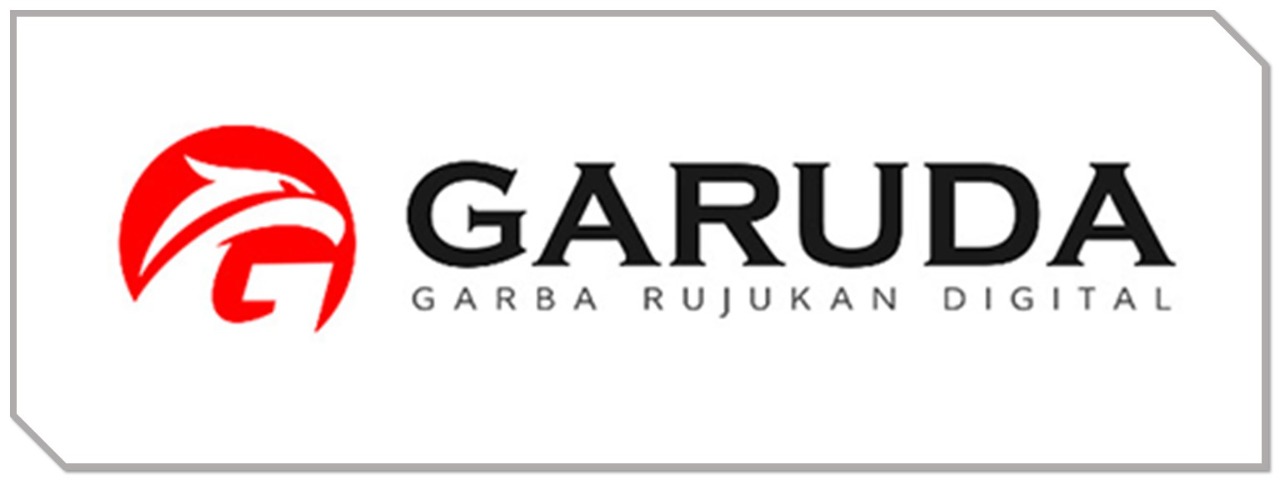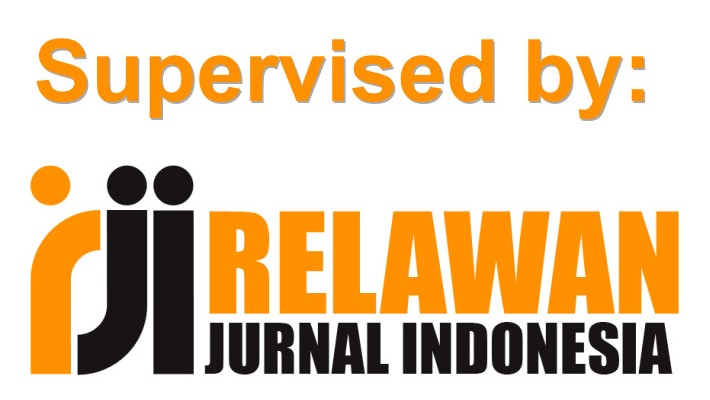The Effect of STEM-Based REACT Model on Students' Critical Thinking Skills: A Meta-Analysis Study
DOI:
https://doi.org/10.56910/literacy.v2i1.560Keywords:
REACT, STEM, Critical Thinking Skills, Meta-AnalysisAbstract
This study aims to determine the effectiveness of the STEM-based REACT model on students' critical thinking skills. This research is a meta-analysis study. This study collected previous meta-analysis studies related to the STEM-based REACT model that showed gaps in the current article. The data sources in the study came from 13 national and international journals published in 2018-2019. The process of searching for data sources through the google scholar database, Eric, Wiley, Taylor of Francis, ScienceDirect, ProQuest and Hindawi. Inclusion criteria are studies on the REACT model using experimental or quasi-experimental research methods and measurement of critical thinking skills to evaluate the effect of the REACT model. The results showed that the average effect size value (ES = 0.88) with high criteria. The findings show that the application of the STEM-based REACT model has a significant effect on students' critical thinking skills. Furthermore, the effect size in this study was influenced by the level of education, learning outcomes, and student competencies. The STEM-based REACT model has a positive impact on students in encouraging their critical thinking skills.
References
Adem, G. &. (2020). The Effect of REACT and Computer-Assisted Instruction Model in 5E on Student Achievement of the Subject of Acids, Bases and Salts. Journal of Science Education and Technology, 29, 658–665.
Akay, C., & Kanadli, S. (2021). the Effect of React Strategy on Achievement in Science Education: a Mixed Research Synthesis. Journal of Baltic Science Education, 20(6), 868–880. https://doi.org/10.33225/JBSE/21.20.868
Alharbi, B. (2022). Saudi Teachers’ Knowledge of Critical Thinking Skills and Their Attitudes Towards Improving Saudi Students’ Critical Thinking Skills. Problems of Education in the 21st Century, 80(3), 395–407. https://doi.org/10.33225/pec/22.80.395
Amaria, J. H. dan, & Jurusan. (2013). Penerapan Model Pembelajaran Inkuiri Untuk Melatih Pada Materi Pokok Laju Reaksi Implementation Inquiry Learning Model For Training High Order Thinking Skills Of The Students On Main Material Of Reaction Rate. Unesa Journal of Chemical Education, 2(2), 151–158.
Amhar, A., Sabrina, R., Sulasmi, E., & Saragih, M. (2022). Student critical thinking skills and student writing ability: The role of teachers’ intellectual skills and student learning. Cypriot Journal of Educational Sciences, 17(7), 2493–2510. https://doi.org/10.18844/cjes.v17i7.7683
Aminah, S. (2022). Journal of Technology and Science Education IN TEAM PROJECT-BASED STEM-METACOGNITIVE SKILLS LEARNING. 12(2), 397–409.
Belland, B. R., Walker, A. E., Kim, N. J., & Lefler, M. (2017). Synthesizing Results From Empirical Research on Computer-Based Scaffolding in STEM Education: A Meta-Analysis. Review of Educational Research, 87(2), 309–344. https://doi.org/10.3102/0034654316670999
Bílgín, A. K., Yürükel, F. N. D., & Yígít, N. (2017). The effect of a developed REACT strategy on the conceptual understanding of students: “Particulate nature of matter.” Journal of Turkish Science Education, 14(2), 65–81. https://doi.org/10.12973/tused.10199a
Cahyono, B. A. D., Sutarto, S., & Mahardika, I. K. (2017). Model Pembelajaran REACT (Relating,Experiencing,Applying,Cooperating, Transfering) disertai Media Video Kejadian Fisika Terhadap Keterampilan Proses Sains dan Hasil Belajar Siswa dalam Pembelajaran Fisika di SMA. Jurnal Edukasi, 4(3), 20. https://doi.org/10.19184/jukasi.v4i3.6155
Chusni et al. (2020). Student’s Critical Thinking Skills Through Discovery Learning Model Using E-Learning on Environmental Change Subject Matter. European Journal of Educational Research, 9(1), 331–349.
Daga, A. T., Wahyudin, D., & Susilana, R. (2022). An Investigation of Developing Indonesian Elementary School Students’ Critical Thinking Skills: A Literature Review. International Journal of Curriculum and Instruction, 14(3), 1752–1766. http://ijci.wcci-international.org/index.php/IJCI/article/view/931
Dogan, A., & Kahraman, E. (2021). The Effect of STEM Activities on the Scientific Creativity of Middle School Students. International Journal of Curriculum and Instruction, 13(2), 1241–1266. https://eric.ed.gov/?id=EJ1291696
Elfira, I., & Santosa, T. A. (2023). Literature Study : Utilization of the PjBL Model in Science Education to Improve Creativity and Critical Thinking Skills. Jurnal Penelitian Pendidikan IPA, 9(1), 133–143. https://doi.org/10.29303/jppipa.v9i1.2555
Elpina, D., Syarifuddin, H., Yerizon, Y., Nuriah, S., Sobarningsih, N., Tyffani, D. M., Utomo, S. B., & Rahardjo, S. B. (2019). Application of react ( relating , experiencing , applying , cooperating , transferring ) strategy to improve mathematical communication ability of junior high school students Application of react ( relating , experiencing , applying , cooperating , transf. Nternational Conference on Mathematics and Science Education 2019 (ICMScE 2019), 1–8. https://doi.org/10.1088/1742-6596/1521/3/032048
Eshetu, F., & Assefa, S. (2019). Effects of Context-Based Instructional Approaches on Students ’ Problem-Solving Skills in Rotational Motion. EURASIA Journal of Mathematics, Science and Technology Education, 15(2), 1–13.
Farid, A., & Nurhayati, S. (2014). Pengaruh Penerapan Strategi REACT Terhadap Hasil Belajar Kimia Siswa Kelas XI. Chemistry In Education, 3(1), 36–42. http://journal.unnes.ac.id/sju/index.php/chemined
Ferdyan, R., Padang, U. N., Padang, U. N., Padang, U. N., Santosa, T. A., Padang, U. N., Razak, A., & Padang, U. N. (2021). Model Pendidikan Lingkungan Hidup : Kegiatan Pembelajaran pada Siswa Sebagai Bagian dari Lingkungan di Era New Normal. Natural Science: Jurnal Penelitian Bidang IPA Dan Pendidikan IPA, 7(1), 51–61.
Feronika, N. I., Gazali, F., Kontekstual, P., & Kritis, B. (2020). PENGARUH PENERAPAN MODEL REACT TERHADAP HASIL BELAJAR DAN KEMAMPUAN BERPIKIR KRITIS SISWA SMA / MA. RanahResearch : Journal of Multidicsiplinary Research and Developmen, 2(3), 60–66.
Fradila, E., Razak, A., Santosa, T. A., Arsih, F., & Chatri, M. (2021). Development Of E-Module-Based Problem Based Learning ( PBL ) Applications Using Sigil The Course Ecology And Environmental Education Students Master Of Biology. International Journal of Progressive Sciences and Technologies (IJPSAT), 27(2), 673–682.
Gökalp1, FaikAdem2, & S. (2020). The Effect of REACT and Computer-Assisted Instruction Model in 5E on Student Achievement of the Subject of Acids, Bases and Salts. Journal of Science Education and Technology (2020), 10956.
Haryati et al. (2022). A case-based study in ERP instructional model: Fostering critical thinking skills and portraying independence on solving problems. Pegem Journal of Education and Instruction, 12(4), 220–225. https://doi.org/10.47750/pegegog.12.04.22
Hasanah, N., Buchori, A., Prasetyowati, D., & Nursyahidah, F. (2019). Efektivitas model pembelajaran Relating, Experiencing, Applying, Cooperating, Transferring (REACT) dan reciprocal teaching berbantuan game edukasi. Pythagoras: Jurnal Pendidikan Matematika, 14(1), 92–101. https://doi.org/10.21831/pg.v14i1.17157
Hayati, N., & Berlianti, N. A. (2020). Critical thinking skills of natural science undergraduate students on biology subject: Gender perspective. JPBI (Jurnal Pendidikan Biologi Indonesia), 6(1), 83–90. https://doi.org/10.22219/jpbi.v6i1.11150
Heleni, S., & Zulnaidi, H. (2021). Effects of REACT Learning Model Based on Riau – Malay Culture Towards Mathematical Problem-Solving Ability and Achievement Motivation amongst High School Students Effects of REACT Learning Model Based on Riau – Malay Culture Towards Mathematical Problem- . Turkish Journal of Computer and Mathematics Education, 12(4), 869–880.
Hidayanti, I. H., Sumarmi, S., & Utomo, D. H. (2019). Pengaruh Model Relating, Experiencing, Applying, Cooperating, Transferring terhadap Kemampuan Berpikir Spasial Siswa SMA. Jurnal Pendidikan: Teori, Penelitian, Dan Pengembangan, 4(9), 1222. https://doi.org/10.17977/jptpp.v4i9.12730
Jelatu, S., Sariyasa, & Made Ardana, I. (2018). Effect of GeoGebra-aided REACT strategy on understanding of geometry concepts. International Journal of Instruction, 11(4), 325–336. https://doi.org/10.12973/iji.2018.11421a
Jeong, H., Hmelo-Silver, C. E., & Jo, K. (2019). Ten years of Computer-Supported Collaborative Learning: A meta-analysis of CSCL in STEM education during 2005–2014. Educational Research Review, 28(February), 100284. https://doi.org/10.1016/j.edurev.2019.100284
Kaowiwattanakul, S. (2021). CEFR Based Learning Approach: Using Literature to Enhance EFL Students’ Reading Skills and Critical Thinking Skills. English Language Teaching, 14(11), 66. https://doi.org/10.5539/elt.v14n11p66
Karsli, F., & Yigit, M. (2017). Effectiveness of the REACT Strategy on 12th Grade Students’ Understanding of the Alkenes Concept. Research in Science and Technological Education, 35(3), 274–291. https://doi.org/10.1080/02635143.2017.1295369
Kaya, S. (2021). European Journal of Education Studies THE EFFECT OF REACT STRATEGY-BASED INSTRUCTION ON 11 TH GRADE STUDENTS ’ ATTITUDES AND MOTIVATIONS i. European Journal of Education Studies, 8(1), 24–26. https://doi.org/10.46827/ejes.v8i3.3609
Kazu, İ. Y., & Yalçın, C. K. (2021). The effect of STEM education on academic performance: A meta-analysis study. TOJET: The Turkish Online Journal of Educational Technology, 20(4), 101–116.
Khalid, L., Bucheerei, J., & Issah, M. (2021). Pre-Service Teachers’ Perceptions of Barriers to Promoting Critical Thinking Skills in the Classroom. SAGE Open, 11(3). https://doi.org/10.1177/21582440211036094
Kim, N. J., Belland, B. R., & Walker, A. E. (2018). Effectiveness of Computer-Based Scaffolding in the Context of Problem-Based Learning for Stem Education: Bayesian Meta-analysis. Educational Psychology Review, 30(2), 397–429. https://doi.org/10.1007/s10648-017-9419-1
Kurniasih, M. D. (2017). Pengaruh Pembelajaran React Terhadap Kemampuan Berpikir Kritis Matematis Ditinjau Dari Habit of Mind Mahasiswa. KALAMATIKA Jurnal Pendidikan Matematika, 2(1), 29. https://doi.org/10.22236/kalamatika.vol2no1.2017pp29-38
Kusumaningsih, W., Sutrisno, S., & Hidayah, F. (2019). Efektivitas Model Pembelajaran Savi dan React Berbantuan LKS terhadap Kemampuan Komunikasi Matematis Siswa SMP. Journal of Medives : Journal of Mathematics Education IKIP Veteran Semarang, 3(2), 197. https://doi.org/10.31331/medivesveteran.v3i2.763
Lailatul Qadri1, a*, M. I. and Y. (2019). Mathematical Creative Thinking Ability for Students Through. International Journal for Educational and Vocational Studies, 1(1), 58–61. https://doi.org/10.29103/ijevs.v1i1.1483
Lestari, D. D., Ansori, I., & Karyadi, B. (2017). Penerapan Model Pbm Untuk Meningkatkan Kinerja Dan Kemampuan Berpikir Kritis Siswa Sma. Diklabio: Jurnal Pendidikan Dan Pembelajaran Biologi, 1(1), 45–53. https://doi.org/10.33369/diklabio.1.1.45-53
M. Karim , Syafrul Antoni2, Karlini Oktarina3, T. A. S. (2023). The Effect of Teacher Professionalism in Islamic Religious Education in the Era of Society 5.0 in Indonesia: A Meta-Analysis. Jurnal Pendidikan Dan Konseling, 5(2), 1349–1358.
Martyaningrum, I. D., Juandi, D., & Jupri, A. (2021). Problem-based learning model on students ’ critical-thinking skills : A meta-analysis study Problem-based learning model on students ’ critical-thinking skills : A meta-analysis study. Journal of Physics: Conference Series, 1796, 1–8. https://doi.org/10.1088/1742-6596/1796/1/012075
Mawarni, J., Syahbana, A., & Septiati, E. (2019). Pengaruh Strategi Pembelajaran React Terhadap Kemampuan Berpikir Kritis Ditinjau Dari Kemampuan Awal Siswa Smp. Indiktika : Jurnal Inovasi Pendidikan Matematika, 1(2), 172–180. https://doi.org/10.31851/indiktika.v1i2.3190
Munawwarah, M., Laili, N., & Tohir, M. (2020). Keterampilan Berpikir Kritis Mahasiswa Dalam Memecahkan Masalah Matematika Berdasarkan Keterampilan Abad 21. Alifmatika: Jurnal Pendidikan Dan Pembelajaran Matematika, 2(1), 37–58. https://doi.org/10.35316/alifmatika.2020.v2i1.37-58
Nisa, F. C., Lesmono, A. D., & Bachtiar, R. W. (2018). Model Pembelajaran Kontekstual Relating, Experiencing, Applying, Cooperating, and Transferring (React) Dengan Simulasi Virtual Dalam Pembelajaran Fisika Di Sma (Materi Momentum, Impuls Dan Tumbukan Kelas X Sman 2 Jember). Jurnal Pembelajaran Fisika, 7(1), 8. https://doi.org/10.19184/jpf.v7i1.7219
Noreen, S., & Id, B. D. (2022). In the here and now : Future thinking and social problem-solving in depression. PLose ONE, 17(6), 1–22. https://doi.org/10.1371/journal.pone.0270661
Novri, U. S. (2018). PENGARUH STRATEGI REACT ( RELATING , EXPERIENCING , APPLYING , COOPERATING , TRANSFERING ) TERHADAP KEMAMPUAN PEMAHAMAN KONSEP MATEMATIS PESERTA DIDIK KELAS VII SMP NEGERI 1 BANGKINANG. Jurnal Cendekia: Jurnal Pendidikan Matematika, 2(2), 81–90.
Nurhasanah, A., & Fauzan, R. (2018). The need analysis of chemistry module based on REACT ( relating , experiencing , applying , cooperating and transferring ) to improve critical thinking ability The need analysis of chemistry module based on REACT ( relating , experiencing , applying , coo. IOP Conf. Series: Journal of Physics: Conf. Series, 1–7.
Oktarina, K., Suhaimi, S., Santosa, T. A., & ... (2021). Meta-Analysis: The Effectiveness of Using Blended Learning on Multiple Intelligences and Student Character Education During the Covid-19 Period. … Journal of Education …, 4(3), 184–192. http://journal.ummat.ac.id/index.php/IJECA/article/view/5505%0Ahttps://journal.ummat.ac.id/index.php/IJECA/article/download/5505/pdf
Pala, F. (2022). The Effect of Philosophy Education for Children (P4C) on Students’ Conceptual Achievement and Critical Thinking Skills: A Mixed Method Research. Education Quarterly Reviews, 5(3), 27–41. https://doi.org/10.31014/aior.1993.05.03.522
Purwanto, A., Rahmawati, Y., Rahmayanti, N., Mardiah, A., & Amalia, R. (2022). Socio-critical and problem-oriented approach in environmental issues for students’ critical thinking skills development in chemistry learning. Journal of Technology and Science Education, 12(1), 50–67. https://doi.org/10.3926/jotse.1341
Putu, N., Cahyani, I., Suarsana, I. M., & Mahayukti, G. A. (2021). Improving Student ’ s Mathematical Problem -Solving Skills Through Relating-Experiencing-Applying- Cooperating-Transferring Learning Strategy and Graphic Organizer. 536(Icsteir 2020), 337–344.
Quainoo, B. A., Otami, C. D., & Owusu, K. A. (2021). Effect of the REACT strategy on senior high school students’ achievement in molecular genetics. Lumat, 9(1), 696–716. https://doi.org/10.31129/LUMAT.9.1.1418
Rahman, A., Islam, P. A., Bekasi, U. I., Ipa, P., Padang, U. N., Jambi, U., Pendidikan, M., Islam, A., Uin, F., & Bonjol, I. (2023). Meta-Analisis : Pengaruh Pendekatan STEM berbasis Etnosains Terhadap Kemampuan Pemecahan Masalah dan Berpikir Kreatif Siswa. 3, 2111–2125.
Rahman, A., Santosa, T. A., & Suharyat, Y. (2023). The Effect of Problem Based Learning-STEM on Students ’ 21st Century Skills in Indonesia : A Meta-Analysis. 2(1).
Rahman, A., Santosa, T. A., Suharyat, Y., & Aprilisia, S. (2023). The Effectiveness of AI Based Blended Learning on Student Scientific Literacy : LITERACY : International Scientific Journals Of Social, Education and Humaniora, 2(1), 141–150.
Razak, A., Santosa, T. A., Lufri, & Zulyusri. (2021). Meta-Analisis: Pengaruh HOTS (Higher Order Thinking Skill) terhadap Kemampuan Literasi Sains dan Lesson Study Siswa pada Materi Ekologi dan Lingkungan pada Masa Pandemi Covid-19. Bioedusiana: Jurnal Pendidikan Biologi, 6(1), 79–87.
Redhana, I. W. (2013). Model Pembelajaran Berbasis Masalah Dan Pertanyaan Socratik Untuk Meningkatkan Keterampilan Berpikir Kritis Siswa. Jurnal Cakrawala Pendidikan, 3, 351–365. https://doi.org/10.21831/cp.v0i3.1136
Saka, A. Z. (2011). Investigation of Student-Centered Teaching Applications of Physics. Eurasian J. Phys. Chem. Educ., Jan, 1(3), 51–58.
Santosa, T. A., Razak, A., Arsih, F., & Sepriyani, E. M. (2021). Meta-Analysis : Science Learning Based on Local Wisdom Against Preserving School Environments During the Covid-19 Pandemic. Journal of Biology Education, 10(2), 244–251.
Saraç, H. (2018). The Effect of Science, Technology, Engineering and Mathematics-STEM Educational Practices on Students’ Learning Outcomes: A Meta-Analysis Study. Turkish Online Journal of Educational Technology - TOJET, 17(2), 125–142.
Sari, R., & Nugroho, O. F. (2021). Pengaruh Pembelajaran Menggunakan Model REACT Terhadap Kemampuan Berpikir Kritis Pada Mata Pelajaran IPA. Prosiding Seminar Nasional, IV(1), 9–13.
Sarwanto, Fajari, S. L. E. W., & Chumdari. (2021). Critical Thinking Skills and Their Impats. Malaysian Journal of Learning and Instruction, 2(2), 161–187.
Sirajuddin, S., Rosdianto, H., & Sulistri, E. (2018). Penerapan model REACT untuk meningkatkan keterampilan proses sains siswa pada materi arus listrik The Implementation of REACT Model to Improve Students ’ Science Process Skills in Electric Current Subject Matter. Jurnal Pendidikan Fisika Dan Keilmuan, 4(1), 17–22. https://doi.org/10.2572/jpfk.v4i1.2011
Snyder, J. J., & Wiles, J. R. (2015). Peer Led Team Learning in Introductory Biology : Effects on Peer Leader Critical Thinking Skills. PLos ONE, 10(1), 1–18. https://doi.org/10.1371/journal.pone.0115084
Sofianora, A., Suharyat, Y., & Santosa, T. A. (2023). PENGARUH PROFESIONALITAS GURU MATEMATIKA DALAM MENINGKATKAN KOMPETENSI SISWA ERA REVOLUSI INDUSTRI 5 . 0 DI INDONESIA : SEBUAH META-ANALISIS. 10(2).
Suharyat, Y., Ichsan, Satria, E., Santosa, T. A., & Amalia, K. N. (2022). Meta-Analisis Penerapan Model Pembelajaran Problem Based Learning Untuk Meningkatkan Ketrampilan Abad-21 Siswa Dalam Pembelajaran IPA. Jurnal Pendidikan Dan Konseling, 4(5), 5081–5088.
Suharyat, Y., Santosa, T. A., Aprilisia, S., & Yulianti, S. (2022). International Journal of Education and Literature ( IJEL ) Meta-Analysis Study : The Effectiveness of Problem Solving Learning in Science Learning in Indonesia. International Journal of Education and Literature (IJEL) Amik Veteran Porwokerto, 1(3), 6–13.
Suharyat, Y., Santosa, T. A., & Satria, E. (2023). The Effectiveness of STEM-Based Learning in Teaching 21 st Century Skills in Generation Z Student in Science Learning : A. International Journal of Progressive Sciences and Technologies, 9(1), 160–166. https://doi.org/10.29303/jppipa.v9i1.2517
Sulastri, L. Y., & Ain, N. (2021). PENGARUH RELATING EXPERIENCING APPLYING COOPERATING TRANSFERRING ( REACT ) DAN MOTIVASI. Jurnal Terapan Sains & Teknologi, 3(2), 122–130.
Suleman, N., Naiyo, M. H., Duengo, S., & Kilo, A. K. (2022). Pengaruh Strategi REACT Terhadap Hasil Belajar Kognitif Siswa pada Materi Larutan Penyangga. Chemistry, 4(1), 44–50.
Sun, L., Hu, L., & Zhou, D. (2021). Which way of design programming activities is more effective to promote K-12 students’ computational thinking skills? A meta-analysis. Journal of Computer Assisted Learning, 37(4), 1048–1062. https://doi.org/10.1111/jcal.12545
Supriyadi, A., Suharyat, Y., Santosa, T. A., & Sofianora, A. (2023). The Effectiveness of STEM-Integrated Blended Learning on Indonesia Student Scientific Literacy : A Meta-analysis. International Journal of Education and Literature (IJEL), 2(1), 41–48.
Syntia et al. (2018). The Effect of Relating, Experiencing, Applying, Cooperating, Transferring (REACT) Learning Strategy on Student Science Process Skills. Indonesian Journal of Biology Education, 7260(2), 82–85.
Taraufu, A. F., Gumolung, D., & Caroles, J. D. S. (2020). Pengaruh Penerapan Strategi Pembelajaran REACT ( Relating , Experiencing , Applying , Cooperating , dan Transferring ) Terhadap Hasil Belajar Siswa Pada Materi Konsep Asam Basa. Oxygenius, 2(2), 52–57.
Taşdemir, F. (2022). Examination of the Effect of Stem Education on Academic Achievement: A Meta-Analysis Study. Education Quarterly Reviews, 5(2), 282–298. https://doi.org/10.31014/aior.1993.05.02.489
Wang, L. H., Chen, B., Hwang, G. J., Guan, J. Q., & Wang, Y. Q. (2022). Effects of digital game-based STEM education on students’ learning achievement: a meta-analysis. International Journal of STEM Education, 9(1). https://doi.org/10.1186/s40594-022-00344-0
Wulandari, D. M., & Maulana, A. (2019). Strategi Pembelajaran React terhadap Kemampuan Berfikir Kritis Matematis. Tulip, 8(2), 1–5.
Wulandari et al. (2015). PEMBELAJARAN MODEL REACTDENGAN PENDEKATAN SAINTIFIK TERHADAP KEMAMPUAN BERPIKIR KRITIS DAN KERJASAMA. UNNESJournal OfMathematics Education, 4(3), 1–10.
Xue, X., Cheng, M., & Zhang, W. (2021). Does Education Really Improve Health? a Meta-Analysis. Journal of Economic Surveys, 35(1), 71–105. https://doi.org/10.1111/joes.12399
Yaki, A. A. (2022). Fostering Critical Thinking Skills Using Integrated STEM Approach among Secondary School Biology Students. European Journal of STEM Education, 7(1), 06. https://doi.org/10.20897/ejsteme/12481
Yanagawa, B., Lee, J., Ouzounian, M., Bagai, A., Cheema, A., Verma, S., & Friedrich, J. O. (2020). Mitral valve prosthesis choice in patients <70 years: A systematic review and meta-analysis of 20 219 patients. Journal of Cardiac Surgery, 35(4), 818–825. https://doi.org/10.1111/jocs.14478
YÜCELYİĞİT, S., & TOKER, Z. (2021). A meta-analysis on STEM studies in early childhood education. Turkish Journal of Education, 10(1), 1–14. https://doi.org/10.19128/turje.783724
Yusuf, M., Witro, D., Diana, R., Santosa, T. A., & Alwiyah, A. (2020). Digital Parenting to Children Using The Internet Digital Parenting Kepada Anak Dalam Menggunakan Internet. Pedagogik Journal of Islamic Elementary School, 3(1), 1–14.
Zahra Ihsani, A., Langitasari, I., & Affifah, I. (2020). Penerapan Model Pembelajaran React Terhadap Keterampilan Berpikir Kritis Siswa Pada Konsep Kelarutan Dan Hasil Kali Kelarutan. Jurnal Inovasi Pendidikan Kimia, 14(1), 2498–2511.
Zulhelmi, Adlim, & Mahidin. (2017). Pengaruh Media Pembelajaran Interaktif Terhadap Peningkatkan Keterampilan Berpikir Kritis Siswa. Jurnal Pendidikan Sains Indonesia, 05(01), 72–80. http://jurnal.unsyiah.ac.id/jpsi
Zulkifli Zulkifli, Agus Supriyadi, Erwinsyah Satria, & Tomi Apra Santosa. (2022). Meta-analysis: The Effectiveness of the Integrated STEM Technology Pedagogical Content Knowledge Learning Model on the 21st Century Skills of High School Students in the Science Department. Psychology, Evaluation, and Technology in Educational Research, 1(2), 68–76. https://doi.org/10.55606/ijel.v1i2.32
Zulyusri1, Desy2, Tomi Apra Santosa3, S. Y. (2022). Meta-analysis The Effect of the Technological Pedagogical Content Knowledge (TPACK) Model Through Online Learning Meta-analysis The Effect of the Technological Pedagogical Content Knowledge (TPACK) Model Through Online Learning on Biology Learning Outcome. International Journal of Progressive Sciences and Technologies (IJPSAT) ISSN: 2509-0119., 34(2), 285–294.






